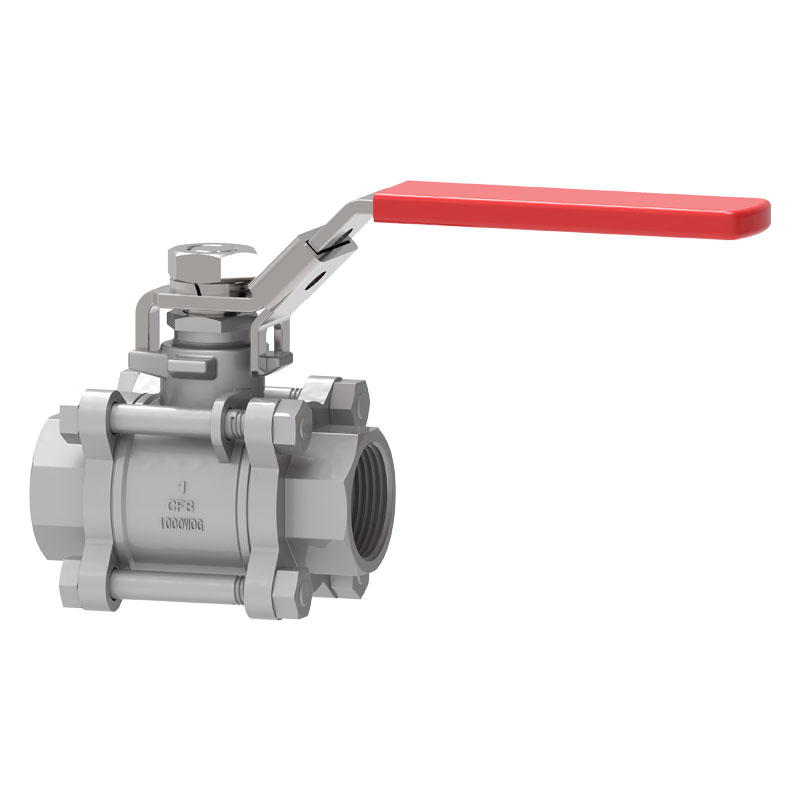- English
- Esperanto
- беларускі
- Hrvatski
- ქართული
- Монгол хэл
- O'zbek
- Հայերեն
- Sundanese
- Español
- Português
- русский
- Français
- 日本語
- Deutsch
- tiếng Việt
- Italiano
- Nederlands
- ภาษาไทย
- Polski
- 한국어
- Svenska
- magyar
- Malay
- বাংলা ভাষার
- Dansk
- Suomi
- हिन्दी
- Pilipino
- Türkçe
- Gaeilge
- العربية
- Indonesia
- Norsk
- تمل
- český
- ελληνικά
- український
- Javanese
- فارسی
- தமிழ்
- తెలుగు
- नेपाली
- Burmese
- български
- ລາວ
- Latine
- Қазақша
- Română
- Srpski језик
Koji se materijali obično koriste za izradu kugličnih ventila?
Ball valves are manufactured using a variety of materials depending on their application, operating environment, and required durability. The commonly used materials for ball valve components are:
1. Metals
a. Stainless Steel
- Properties: Corrosion-resistant, durable, and suitable for high-temperature and high-pressure applications.
- Applications: Chemical processing, oil and gas, food and beverage industries.
b. Carbon Steel
- Properties: Strong, cost-effective, and resistant to wear in low-corrosive environments.
- Applications: Industrial pipelines, water treatment plants, and power generation.
c. Brass
- Properties: Corrosion-resistant, ductile, and economical.
- Applications: Plumbing systems, HVAC systems, and low-pressure applications.
d. Bronze
- Properties: Durable, corrosion-resistant, and ideal for water-related applications.
- Applications: Marine environments, water distribution, and wastewater systems.
e. Alloy Steel
- Properties: High strength and wear resistance, suitable for extreme environments.
- Applications: High-pressure and high-temperature industries like oil and gas.

2. Plastics/Polymers
a. PVC (Polyvinyl Chloride)
- Properties: Lightweight, corrosion-resistant, and cost-effective.
- Applications: Low-pressure water systems, irrigation, and chemical handling.
b. CPVC (Chlorinated Polyvinyl Chloride)
- Properties: Higher temperature resistance than PVC, corrosion-resistant.
- Applications: Hot water systems and chemical applications.
c. PTFE (Polytetrafluoroethylene)
- Properties: Excellent chemical resistance and low friction.
- Applications: Valve seats, seals, and chemical industries.
d. PP (Polypropylene)
- Properties: High chemical resistance and lightweight.
- Applications: Acidic or corrosive fluid handling systems.
3. Composite Materials
- Fiberglass-Reinforced Plastics (FRP): Used for lightweight and high-strength applications in corrosive environments.
4. Specialty Materials for Extreme Conditions
a. Hastelloy
- Properties: Exceptional corrosion resistance to harsh chemicals.
- Applications: Chemical processing and acidic environments.
b. Monel
- Properties: High corrosion resistance, especially in marine environments.
- Applications: Offshore and seawater applications.
c. Titanium
- Properties: High strength, lightweight, and excellent corrosion resistance.
- Applications: Aerospace, marine, and medical industries.
d. Inconel
- Properties: Resistant to extreme temperatures and oxidation.
- Applications: High-temperature industries, such as power generation and aerospace.
Components and Materials
1. Body: Typically made from metals like stainless steel, carbon steel, or brass for strength and durability.
2. Ball: Often crafted from stainless steel, chrome-plated brass, or plastic for smooth operation and corrosion resistance.
3. Seats and Seals: Made from PTFE, Teflon, or other soft polymers for leak-proof operation.
4. Stem: Commonly stainless steel or brass, designed to withstand torque and pressure.
Conclusion
The choice of material for a ball valve depends on factors like fluid type, operating pressure and temperature, and environmental conditions. Proper material selection ensures optimal performance, longevity, and reliability of the valve in its intended application.
Waits Valve Co., Ltd. is a well-known enterprise with 15 years of history dedicated to the production and export of industrial valves, it provides OEM and ODM services to foreign companies, mainly producing industrial-grade ball valves, gate valves, globe valves, butterfly valves, etc., which are widely used in oil and gas pipelines, oil production, refining, petrochemicals, chemicals, chemical fibers, metallurgy, water conservancy, power generation, food and other industries.Visit our website at www.waitsvalve.com to learn more about our products. For inquiries, you can reach us at waits@waitsvalve.com.




